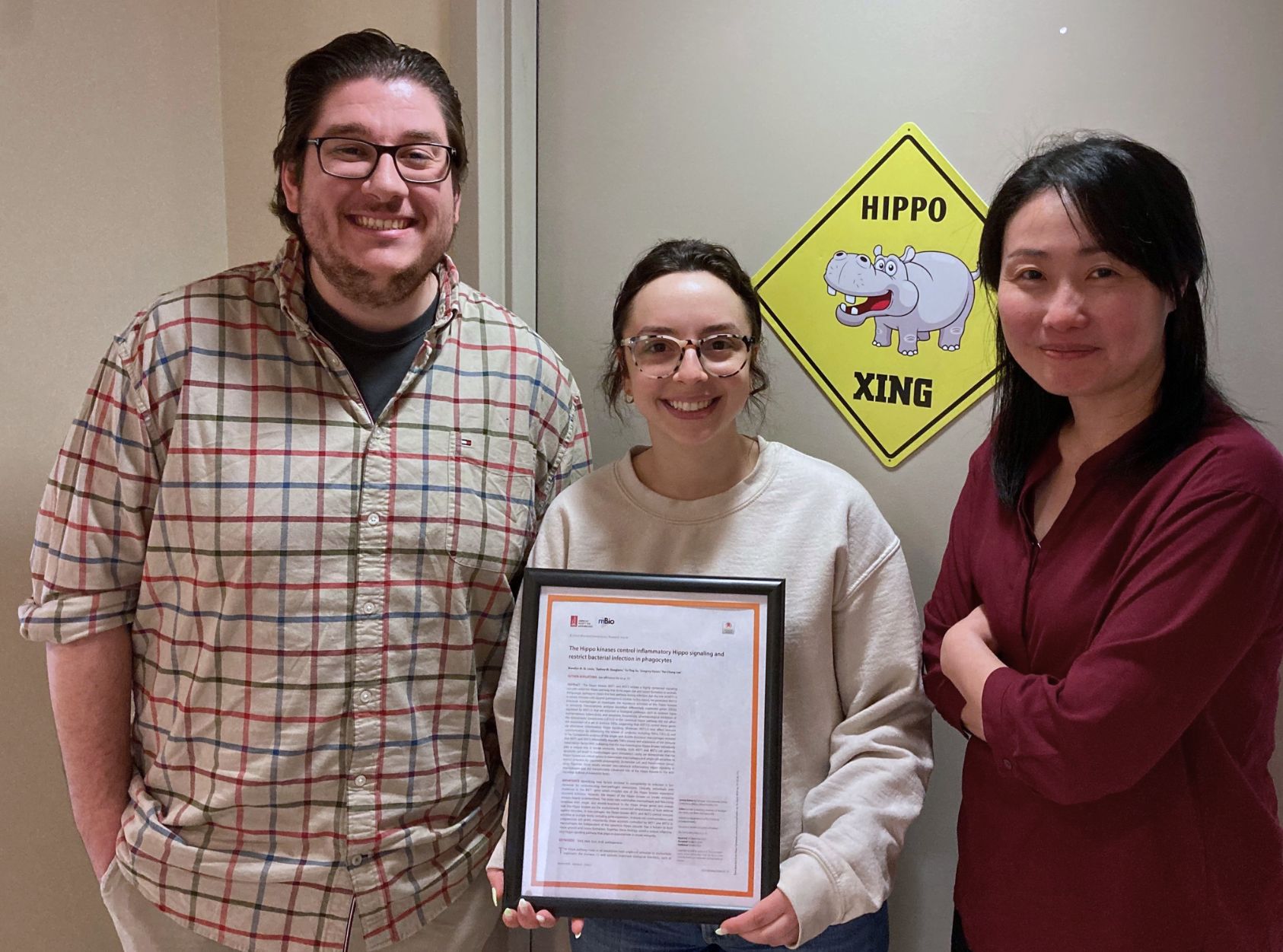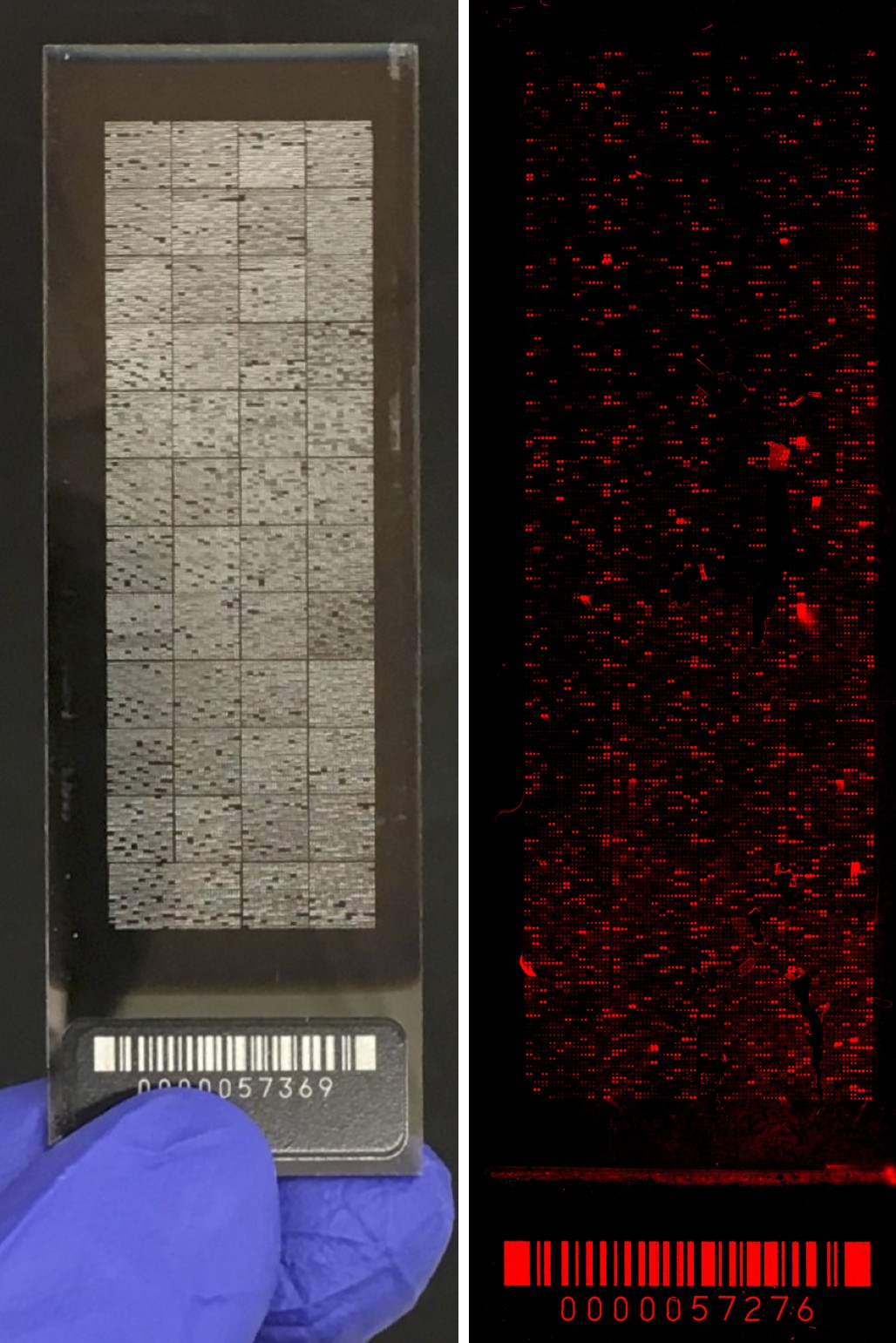New research sheds light on how our bodies fight infections
Wayne State University's Lee lab, led by Biological Sciences Assistant Professor Pei-Chung Lee, has received an NIH award to study how Hippo kinase proteins in human cells help protect us from infections. This research focuses on the Hippo kinases, MST1 and MST2, which have critical roles in deciding how human cells grow and die. Imagine the Hippo kinases as a traffic light system that ensures cells grow when needed and stop when it's time, for example, the formation of the liver. MST1 and MST2 are proteins that send signals to keep everything in check. If this Hippo system goes wrong, it can lead to issues like cancers.

The Lee lab recently discovered that the Hippo kinases are also very important in the immune cells in fighting off infection. A recent study published by the Lee lab uncovers a novel function of MST1 and MST2 in macrophages that are professional fighters in our immune system against invading microbes. Moreover, when the researchers removed the MST1 and MST2 genes in macrophages, these cells lost their ability to fight pathogens, such as Legionella pneumophila which is the cause of fatal pneumonia called Legionnaires’ disease in humans and the culprit of the pneumonia outbreak during the Flint water crisis. Their findings provide insights at molecular levels for why people with mutations in the MST1 gene have weaker immune systems and form a foundation to better understand how the Hippo kinases control our immunity.
Research goals
Identifying new protein targets: The team will use a cutting-edge technique on human protein microarrays, a.k.a. proteins on chips, developed by Dr. Lee to find which proteins MST1 and MST2 interact within our cells. This will help them understand how these proteins control immune responses and cell death during infections.
 Understanding immune gene regulation: The Lee lab also found that MST1 and MST2 stimulate the production of a set of immune proteins that is crucial for killing bacteria. The scientists in the Lee lab will investigate how MST1 and MST2 influence these immune genes to help our cells build a strong defense against infection.
Understanding immune gene regulation: The Lee lab also found that MST1 and MST2 stimulate the production of a set of immune proteins that is crucial for killing bacteria. The scientists in the Lee lab will investigate how MST1 and MST2 influence these immune genes to help our cells build a strong defense against infection.
Advancing knowledge
By understanding how MST1 and MST2 work in the immune system, scientists can develop new ways to boost our body's natural defenses against infections by improving immune responses. This research could lead to new treatments for people with weakened immunity, helping them fight off infections more effectively. Since the Hippo pathway is also involved in cancer, this study may provide new insights into cancer prevention and treatment by revealing how these proteins control cell growth and death.
This important research offers a hopeful outlook to help unlock the secrets of our immune system, leading to better health outcomes and new therapies for infections and cancer patients.